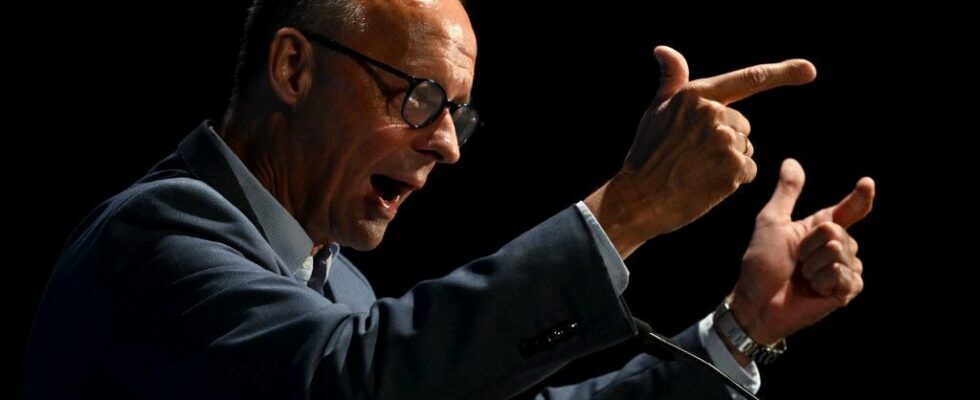We thought he was a prisoner of the 1990s. But “the man of the past”, as he was long nicknamed by the media who doubted his ability to rise from the ashes, managed his comeback, by being triumphantly re-elected to the presidency of the Christian Democratic Union (CDU), on May 6. A return to the forefront which was not at all obvious. “Hello, my name is Friedrich Merz. It’s spelled with an ‘e’ [NDLR : son nom se prononce comme le mois de mars, März]”, he said, smirking, on October 31, 2018, for his first press conference… sixteen years after being ousted from the Federal Assembly by Angela Merkel, his close enemy.
In addition to his has-been image, he also had to erase his “financial shark” profile which stuck to him. For this, Friedrich Merz discreetly left, in 2018, the presidency of the supervisory board of BlackRock Germany, the world leader in asset management whose reputation does not sit well with this Germany, which is very attached to its social protection system – and much less liberal than in the 1970s.
With an income of 1 million euros per year and two private planes, Merz presented himself to voters as a “middle-class citizen”. He ended up abandoning his businessman costume to resume – with eloquence – his role as leader of the opposition, abandoned in 2002. With a “founding program”, voted on at the beginning of May at the Berlin Congress, Friedrich Merz straightened out a party crushed by the electoral rout of 2021 and divided between those nostalgic for Merkel’s humanitarian line and the ultraconservatives who set out to win back far-right voters.
The Chancellery in the crosshairs
His sentences are shorter, sharper and tailored to be taken up by the press: “You run Germany like a plumber,” he said to Scholz during the budget crisis. On Ukraine, he accuses the chancellor of playing “with the fear of the Germans” and of having “ruined” relations with France. To reframe a CDU that was too social for his taste, Friedrich Merz discreetly set foot on the borders of the AfD (Alternative für Deutschland). “Germany is not Kreuzberg [NDLR : quartier turc de Berlin]it’s Gillamoos [NDLR : fête de la bière en Bavière]”, he declared on September 5, 2023 in Abensberg, even though 25% of Germans have an immigrant background.
At 68, Merz continues his crusade against refugees and social minimums. After denouncing the “social tourism” of Ukrainians and stigmatizing the young people of the neighborhoods by calling them “little pashas”, Merz lashed out against the rejected asylum seekers who are having their teeth “done for free when German citizens don’t get an appointment with their dentist. “He is adding fuel to the fire, but it is the AfD who benefits,” warns Ursula Münch, director of the Tutzing Academy of Political Science in Bavaria.
Friedrich Merz has no experience of power yet, he has never been a minister, he has never led a national electoral campaign. But he believes in the Chancellery in 2025. “We will win the elections,” he assured delegates at the May congress. In his trips to Israel, France or Brussels, he already behaves like a head of government. And he is welcomed as such by Emmanuel Macron or Benjamin Netanyahu.
For the moment, its “AfD light” line has made it possible to maintain the CDU at 30% in voting intentions, which allows it to hope for a victory. But his candidacy will be decided at the end of the regional elections in September where the far right is preparing for a triumph. Merz vowed in 2019 to “halve AfD voters”. Today, there are twice as many.
